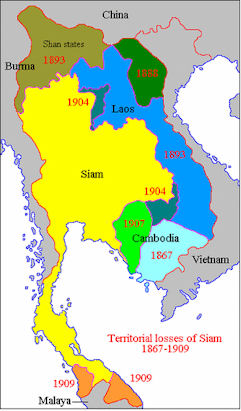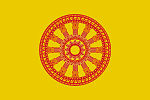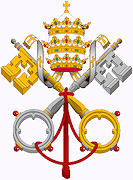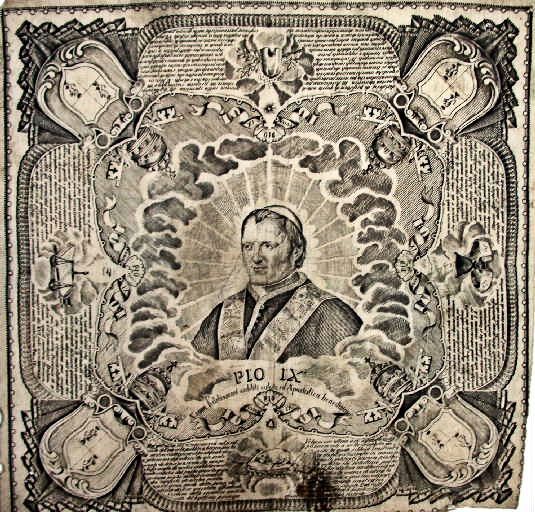

Zitierweise / cite as:
Payer, Alois <1944 - >: Chronik Thailands = กาลานุกรมสยามประเทศไทย. -- Chronik Undatiertes (Rama IV.). -- Fassung vom 2013-07-10. -- URL: http://www.payer.de/thailandchronik/chronik1851-2a.htm
Erstmals publiziert: 2013-07-10
Überarbeitungen:
©opyright: Dieser Text steht der Allgemeinheit zur Verfügung. Eine Verwertung in Publikationen, die über übliche Zitate hinausgeht, bedarf der ausdrücklichen Genehmigung des Herausgebers.
Dieser Text ist Teil der Abteilung
Thailand von
Tüpfli's Global Village Library
ช้างตายทั้งตัวเอาใบบัวปิดไม่มิด
|
Gewidmet meiner lieben Frau Margarete Payer die seit unserem ersten Besuch in Thailand 1974 mit mir die Liebe zu den und die Sorge um die Bewohner Thailands teilt. |
|
Bei thailändischen Statistiken muss man mit allen Fehlerquellen rechnen, die in folgendem Werk beschrieben sind:
Die Statistikdiagramme geben also meistens eher qualitative als korrekte quantitative Beziehungen wieder.
|
Über religiösen Fanatismus:

"Whereas no just ruler," he proclaimed, "restricts the freedom of his people in the choice of their religious belief wherewith each man hopes to find strength and salvation in his last hour as well as in the future beyond; And whereas there are many precepts common to all religions, such for instances as the injunctions not to kill, nor steal, nor commit adultery, nor speak falsehood, nor partake of intoxicating liquor, and the advices to forbear anger, to be kind and truthful, to practise gratitude and generosity and to perform innumerable other merits which mankind of whatever race and language hold to be good, true and righteous;
Wherefore, in the exercise of the said freedom of religion some persons do commit acts which are inconsistent with policy." He then listed by name some of the fanatics— a nun included—who had committed themselves to the fire.
"Just rulers and wise men," he continued, "in all lands and religious faiths find in such self-destructive acts nothing but an expression of worthless credulity. . . . None should be taken as meritorious under the Buddhist teaching. Search as one might in the Book of Precepts whether given by our Lord the Buddha or by His Disciples, one would never find a single passage to support the practice. True, tracts may be found in some translation of the Pali made by some careless priests referring to the gruesome sacrifices aforesaid, but upon studied examination of the difference in style one cannot but reach the inevitable conclusion that they were made by ignorant and superstitious priests to deceive ignorant and superstitious people. . . . Wherefore, the said acts are not meritorious under the Buddhist Faith, but are inconsistent with polity, and are deplored by all religions. As such, they should never be encouraged."
In the same proclamation Mongkut also stated his firm resolve "to preserve the purity of the Holy Order, so that it may continue to be a help and guidance to His people, for whom He ever wishes a long life in coolness and felicity."
[Zitiert in: Moffat, Abbot Low <1901 - 1996>: Mongkut, the king of Siam. -- Ithaca N.Y. : Cornell UP, 1961. --254 S. : Ill. ; 23 cm. -- S. 162f.]
Über Frauen, die ihre Ehemänner im Kloster suchen:

"Women who for a long time have been divorced from their husbands or whose husbands have long been dead, including spinsters who have never met their mates are prone to choose bachelors for their husbands. As the masses of laymen are occupied in matrimony, the only field left open for such women to exercise their energy is the monastery. The institution is a place where the priests are confined to long celibacy, thus capable of providing the ladies with brand new husbands. Even more so are the priests looked upon as a fattened hog, for indeed many of them have grown great in fame and wealth, having been promoted to the rank of Head Priest with the title of nobility, awarded their degrees and royal grants, and what with a worldly offering here in a sum of money at a public preaching and another such offering there at a cremation or official function, such a pile of feungs, salungs, taels and bahts as accumulated by them may be had for the taking after their being lured into matrimony. That the priests are expected to fall easy victims is because they are likely to be driven crazy by their newly found love. For this reason the artful ladies would place their son in the custody of their prospective catch, or assign a grown kinsman or neighbour to wait in attendance on the priest, whereby their line of communication and intelligence being firmly established, they would feed through that channel all the toothsome tidbits and choice delicacies calculated to break down the resistance of the holy brother they intend to victimize.
The result is invariably as might be expected. For the priest, having been favoured with such kindnesses, would begin to show signs of weakness, first by getting on terms of civil intimacy with his benefactress, calling her Milady Benefactress at the House, at the Boat-House or at the Building up North or South, as the case may be. Later, having divested himself of the yellow robe, the man would be wedded to the benefactress under consideration, or to her sister or daughter as suits the convenience. Worse still, sometimes the said civil intimacy oversteps its bounds. . . ."
[Zitiert in: Moffat, Abbot Low <1901 - 1996>: Mongkut, the king of Siam. -- Ithaca N.Y. : Cornell UP, 1961. --254 S. : Ill. ; 23 cm. -- S. 163.]
Erlass über Petitionen:
"As in all of Mongkut’s decrees, a disarming simplicity pervades the statute which establishes the right of petition. "Should the petitioner," he wrote, "be a commoner without any person to assist him in submitting the petition he shall go and wait before the Sudhai Swariya Palace on any day preceding the Buddhist Sabbath, that is to say, on the 7th of the Waxing or Waning Moon in the full month or the 13th in the incomplete month. There, in the afternoon and eventide when not otherwise occupied in other affairs of the Realm, and provided that it will not be raining at the time, His Majesty the King, . . . will appear on the throne in the said Palace or on the Penja throne in front thereof to sit in judgment, whereupon the Judgment drum shall be beaten calling all the petitioners before His gracious presence where they may personally present Dikas [petitions] to their King by holding the same up over their heads." 20 He insisted, however: "The language used in the petition is required to be concise, and care shall be taken to avoid subtlety, prevarication and circumlocution. Under no circumstances must a malicious slander of any noble be included in the petition and the use of obscene language is strictly forbidden."" [Zitiert in: Moffat, Abbot Low <1901 - 1996>: Mongkut, the king of Siam. -- Ithaca N.Y. : Cornell UP, 1961. --254 S. : Ill. ; 23 cm. -- S. 35f.]
Erlass über Prostrationen:
"A Chinese may, at the passing of the royal procession, choose either to prostrate himself in accordance with the Thai custom or to stand and kowtow [叩頭] in such manner as a Chinese would stand and bow to his Emperor. The same act of prostration is permitted to a Farang [ฝรั่ง, Siamese term for member of the white race] who prefers the Thai custom. Should he prefer to stand up, take off his hat and bow or salute in the custom of his country or in the manner of a foreign Asiatic, let him be. No officer proceeding in the royal procession, no City authorities or Nai Amphur [นายอำเภอ, district officer] or any of the officers responsible for maintaining order among the crowd, nor any among the Thai people in attendance on His Majesty shall forbid him his choice or force him to do homage against his own custom and inclination." [Zitiert in: Moffat, Abbot Low <1901 - 1996>: Mongkut, the king of Siam. -- Ithaca N.Y. : Cornell UP, 1961. --254 S. : Ill. ; 23 cm. -- S. 29]
Erlass über Richterwahl:
"On one occasion, when two judges had died and their places were to be filled, Mongkut decided on a noble experiment. By royal command it was announced by the Minister of the Royal Household that it had been reported to His Majesty "that in accordance with the practice in other countries persons to be appointed by the Ruler as judges are first elected by the people, whereby only the choices of the people are assigned to the task of sitting in their judgment. Being graciously desirous of promoting the peace, prosperity and happiness of the people of the Realm, His Majesty deems it fit to modify existing custom in favour of such an election.
Wherefore, be it declared to all princes of the Royal House, whether ennobled or as yet un-ennobled and to servants of the Crown . . . that they are invited to make their choice in the coming election. . . . The elector is requested to put down in writing his own name and the names of the persons he elects to the two posts just mentioned. No one is obliged to make his choice among the servants of the Crown attached to the Palaces of the First and Second King. On the contrary, any person, even though he be a slave, who is believed to be so sufficiently possessed of wisdom and restraint as to be able to give clear and satisfactory judgment in accordance with truth, justice and the law may be elected as judge.
Election slips will be distributed to all the princes and servants of the Crown by the officers of the Department of His Majesty’s Secretary, with the request that each prince and servant of the Crown may please to fill in one slip only and return the same to His Majesty. The princes and servants of the Crown are further requested not to treat this election as a joke. Nor should they dilly-dally, thinking that perhaps their choice would not meet with His Majesty’s approval, or that perchance they would lose face if whomsoever they elected were rejected by other electors. Such a habit of thought should be entirely discarded. For human hearts vary one from the other, and well may the choices in the election differ because it is His Majesty’s wishes that they be freely made.""
[Zitiert in: Moffat, Abbot Low <1901 - 1996>: Mongkut, the king of Siam. -- Ithaca N.Y. : Cornell UP, 1961. --254 S. : Ill. ; 23 cm. -- S. 33f.]
Erlass über freie Gattenwahl:
"As a result even some of his major reforms furnish remarkable reading, as in the judgment he rendered in response to a dika submitted by a girl who had been abducted by the man her parents wanted her to marry, whereas she wanted to marry her lover: "Whereas by existing custom a man is pleased to consider any woman his wife whom he is able secretly to compromise. So is the general belief of litigants and so has the Court passed judgments handing women over to the men by whom they have been compromised. These women are not animals. Even so, the old law concerning the freedom of divorce was once repealed. However, such a measure cannot be deemed to be just. For the choice of separation should be freely exercisable by either the husband or the wife. Therefore, the old law is hereby confirmed, and all judgments on the status of a wife under the custom above referred to shall be revised to conform to the rule of free will in the woman."
He denied that this decision was inconsistent with certain other judgments that he had rendered: "For the judgment in the other cases was based on the dignity of the nobles concerned." He summarized one of these cases and then continued:
"One would criticise this last judgment as drawing a distinction between the nobility and the common people. But far better it is to draw the distinction than to displease the nobility in these cases. Were the rule of free will to be followed with regard to their women these nobles would be stricken with surprise and mortification, whereby to see a judgment allowing any of their womanfolk to be brought to dust by the effrontery of a commoner would provoke in them a painful suspicion that the Ruler no longer upholds their honour and tradition. No amount of damages paid to them in compensation would assuage such a pain of such a suspicion. Even were the compensation amounted to one hundred catties, having spoken their word of disapproval these nobles would never take it back. The judge in such a case, therefore, would be a fool to follow the rule of free will in the woman. ...
Wherefore, in deciding cases arising in the City as well as outside it the judges are hereby directed to consider the degree of nobility involved. Among the people of lower birth they are to follow the rule laid down as in the foregoing, whereby the doctrine of marriage by mere touch and compromise is overruled, and the wishes of the woman are to be followed, whilst those of the parents and kinsmen are to be consulted among the nobles.
The fact is undeniable that people of lower birth are more interested in acquiring wealth than in furthering the welfare of their children. As the result, children, who should receive nothing but kindness and mercy from their parents, are oft consigned by the latter to miserable slavery in mere exchange for gold and silver. Therefore, the rule of free will must be made applicable so as to prevent havoc being brought upon the persons of women oft sold into bondage by their parents.
The rule, however, must be otherwise in application to the nobles. For in such a case even a small liberty taken of the woman through a marriage contracted below her rank grows big and intolerable in the eye of her sensitive kinsmen. If liberties must be taken of the woman, her nobility of kinfolk prefer that they be taken by a nobility of equal rank, so that through fear of their power and influence the general public, who perceive something insinuating, would find wisdom in keeping their mouth shut, whereby dignity would be saved and the scandal relegated in the course of time to happy oblivion.""
[Zitiert in: Moffat, Abbot Low <1901 - 1996>: Mongkut, the king of Siam. -- Ithaca N.Y. : Cornell UP, 1961. --254 S. : Ill. ; 23 cm. -- S. 37f.]
Erlass: Auch die königliche Familie untersteht der Strafgerichtsbarkeit:
"Mongkut firmly rejected any idea that members of the royal family were exempt from trial for criminal offenses. Certain judges had declined to accept jurisdiction in a criminal case involving several members of the royal family. Mongkut wrote the Council of Ministers: "The phrase, ‘members of the Royal Family cannot be brought to trial,’ if used, is a direct disparagement to the honour and dignity of the Royal House." Elsewhere he made it clear that he also, the absolute ruler of Siam, was not above the law. "If any of the officials or one of the people should complain against the King let such complaint be accepted. Let orders under the seal of the Rajawongse Pavara Sthan be issued to all ministers and the lady officials inside the Palace. Let them take evidence on the case and let judgment be given. If such evidence is not sufficient or not clear, let a letter be addressed to us as King and we will reply according to truth."" [Zitiert in: Moffat, Abbot Low <1901 - 1996>: Mongkut, the king of Siam. -- Ithaca N.Y. : Cornell UP, 1961. --254 S. : Ill. ; 23 cm. -- S. 40.]
Erlass über adlige Trunkenbolde:
"Notice is hereby given to all servants of the Crown attached to the Ministry of the Royal Household that the Prince Davorayos and the Prince Alongkot Pricha are in the habit of getting drunk whilst resident within the confines of their respective palaces. Wherefore, with the exception of the Officers of the Oars and Lawn Sweepers under the command of the Prince Davorayos and the Officers of the Rifles and Arsenal under the command of the Prince Alongkot Pricha, no person is permitted to enter into their palaces for any purpose whatsoever. . . . The purpose of this injunction is to prevent the caller at the said palace from becoming an object of the carousing Prince’s unjustifiable outburst. ... as by law the presumption in cases of brawl committed within the household lies against the caller. ... Be it clearly brought to the attention of all likely callers at the palaces aforesaid that the Princes hardly ever get sober. Wherefore, no one is guaranteed a safe and uneventful visit thereto. Even those who come under the exemption . . . are advised to exercise due care and prudence. . . . While the Princes are on the rampage, they had better stay outside." [Zitiert in: Moffat, Abbot Low <1901 - 1996>: Mongkut, the king of Siam. -- Ithaca N.Y. : Cornell UP, 1961. --254 S. : Ill. ; 23 cm. -- S. 39.]
Erlaubnis des Auftritts von Lakhon-Tänzerinnen außerhalb des Palasts:
König Mongkut erlaubt, dass auch außerhalb des Harems Lakhon-Theater (ละคร) durch Frauen aufgeführt werden darf (Lakhon nai - ละครใน). Lakhon nok (ละครนอก), das bisher außerhalb des Harems allein durch Männer aufgeführt werden durfte, darf ab jetzt von gemischten Gruppen aus Frauen und Männern aufgeführt werden.
Abb.: Lakhon-Nok-Truppe (ละครนอก) aus der Zeit Ramas VI.
[Bildquelle: Wikipedia. -- Public domain]
Mongkut über den Papst:

Als König Mongkut in einer Zeitung liest, dass ein Dieb die Schlüssel zu Schätzen des Papstes (Pius IX.) und dann wertvolle Juwelen gestohlen hat, ruft der König aus: "Was für ein Mann! Behauptet, er besitzt die Schlüssel zum Himmel und kann nicht einmal seine eigenen Schlüssel bewahren!"

Abb.: Pius IX.
umgeben von seinen Schlüsseln
[Bildquelle: Wikipedia. -- Public domain]
Der erste Fotograf Siams:
Der erste Thai, der fotografieren lernt, ist Phraya Krasappanakitkoson (Mot Amatyakul) (พระยากระษาปฌกิจโกศล - โหมด).
Abb.: Phraya Krasappanakitkoson (พระยากระษาปฌกิจโกศล)
ausführlich: http://www.payer.de/thailandchronik/ressourcen.htm
Moffat, Abbot Low <1901 - 1996>: Mongkut, the king of Siam. -- Ithaca N.Y. : Cornell UP, 1961. --254 S. : Ill. ; 23 cm.
Blofeld, John <1913 - 1987>: King Maha Mongkut of Siam. -- 2. ed. -- Bangkok : Siam Society, 1987. -- 97 S. : Ill. ; 22 cm.
Chula Chakrabongse [จุลจักรพงษ์] <1908 - 1963>: Lords of life : History of the Kings of Thailand. -- 2., rev. ed. -- London : Redman, 1967. -- 352 S. : Ill. ; 22 cm.
Phongpaichit, Pasuk <ผาสุก พงษ์ไพจิตร, 1946 - > ; Baker, Chris <1948 - >: Thailand : economy and politics. -- Selangor : Oxford Univ. Pr., 1995. -- 449 S. ; 23 cm. -- ISBN 983-56-0024-4. -- Beste Geschichte des modernen Thailand.
Terwiel, Barend Jan <1941 - >: A history of modern Thailand 1767 - 1942. -- St. Lucia [u. a.] : Univ. of Queensland Press, 1983. -- 379 S. ; 22 cm.
Ingram, James C.: Economic change in Thailand 1850 - 1870. -- Stanford : Stanford Univ. Pr., 1971. -- 352 S. ; 23 cm. -- "A new edition of Economic change in Thailand since 1850 with two new chapters on developments since 1950". -- Grundlegend.
Akira, Suehiro [末廣昭] <1951 - >: Capital accumulation in Thailand 1855 - 1985. -- Tokyo : Centre for East Asian Cultural Studies, ©1989. -- 427 S. ; 23 cm. -- ISBN 4896561058. -- Grundlegend.
Skinner, William <1925 - 2008>: Chinese society in Thailand : an analytical history. -- Ithaca, NY : Cornell Univ. Press, 1957. -- 459 S. ; 24 cm. -- Grundlegend.
Simona Somsri Bunarunraksa [ซีมอนา สมศรี บุญอรุณรักษา]: Monseigneur Jean-Baptiste Pallegoix : ami du roi du Siam, imprimeur et écrivain (1805 - 1862). -- Paris : L'Harmattan, 2013. -- 316 S. : Ill. ; 24 cm. -- (Chemins de la mémoire ; Novelle série). -- ISBN 978-2-336-29049
Morgan, Susan <1943 - >: Bombay Anna : the real story and remarkable adventures of the King and I governess. -- Berkeley [u.a.] : Univ. of California Press, 2008. -- 274 S. : Ill. ; 23 cm. -- ISBN 978-0-520-26163-1
ศกดา ศิริพันธุ์ = Sakda Siripant: พระบาทสมเด็จพระจุลจอมเกล้าเจ้าอยู่หัว พระบิดาแห่งการถ่ายภาพไทย = H.M. King Chulalongkorn : the father of Thai photography. -- กรุงเทพๆ : ด่านสุทธา, 2555 = 2012. -- 354 S. : Ill. ; 30 cm. -- ISBN 978-616-305-569-9
Lavery, Brian: Schiffe : 5000 Jahre Seefahrt. -- London [u. a.] : DK, 2005. -- S. 184. -- Originaltitel: Ship : 5000 years of marine adventure (2004)